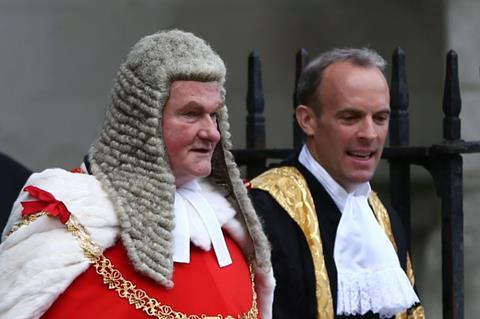Published findings of judicial misconduct will be ‘more detailed’, according to proposals put forward by the lord chancellor and the lord chief justice – but the public will not be allowed to attend hearings as that could ‘undermine’ confidence in the disciplinary system.
In a consultation document published today, Dominic Raab and Lord Burnett recommend that disciplinary statements issued by the Judicial Conduct Investigations Office (JCIO) should include more information about the circumstances in which the misconduct occurred, the individual judge’s response to the allegations and any aggravating and mitigating factors considered by the lord chancellor and lord chief justice.
Raab and Burnett said the current disciplinary system, established in 2013, has ‘stood the test of time well’, but added that ‘in a small proportion of cases, investigations take too long’. ‘While it would be wrong to describe the system as closed, we recognise that more could be done to aid public understanding of disciplinary decisions,’ they added.
However, a senior judge-led working group which considered whether judicial disciplinary hearings should be held in public concluded that ‘while public hearings could help to promote transparency, the arguments against holding disciplinary panel hearings in public outweigh any potential benefits’.

As disciplinary panels only make recommendations to the lord chancellor and lord chief justice in a written – unpublished – report, the panels are different from other disciplinary panels which means ‘public hearings would have less value in terms of insight into the decision-making’, the consultation says.
‘The personal involvement of the lord chancellor and lord chief justice, whose joint decisions are published, provides validation of the process, which we believe carries considerable weight, lessening the need to open the process to the public,’ it adds.
Raab and Burnett also recommend the adoption of three categories of seriousness – ‘minor, serious or gross’ – for findings of misconduct and the introduction of a period of suspension as ‘an available sanction in any case of misconduct which falls just short of warranting removal from office’.
An expedited procedure should be available for lower-level cases with agreed facts, they suggest, together with an express right for judges to ask for their case to be heard in person and to be allowed to be accompanied to disciplinary hearings by a judicial colleague ‘for moral support’.
This article is now closed for comment.



























17 Readers' comments